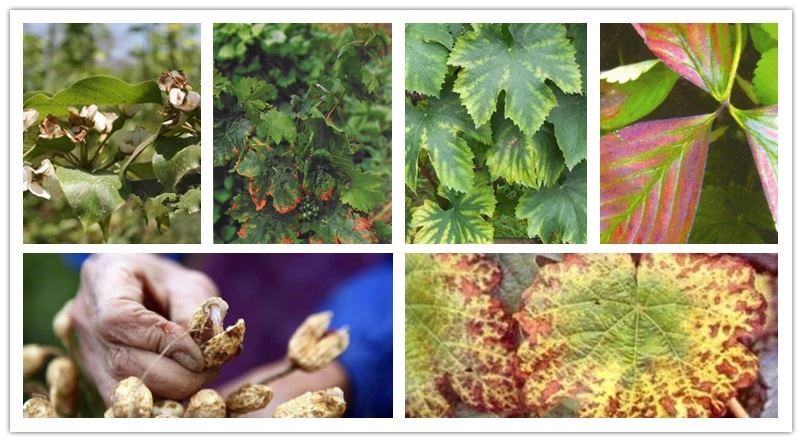
Ott . 13, 2024 07:32 Back to list
best organic fertilizer watermelons
Best Organic Fertilizers for Watermelons
Watermelons are a delightful summer fruit, loved for their sweetness and hydrating properties. Growing the perfect watermelon requires attention to soil quality, especially when it comes to nutrition. Using organic fertilizers not only enhances the taste and texture of your watermelons but also supports sustainable farming practices. Here, we explore some of the best organic fertilizers to cultivate juicy watermelons, ensuring they thrive while maintaining environmental integrity.
Understanding Watermelon Nutritional Needs
Before diving into the types of organic fertilizers, it’s essential to understand the nutritional needs of watermelon plants. Watermelons are heavy feeders, requiring sufficient amounts of macronutrients like nitrogen (N), phosphorus (P), and potassium (K). Additionally, they benefit from secondary nutrients such as calcium, magnesium, and sulfur, along with trace elements like iron, manganese, and zinc.
Benefits of Organic Fertilizers
Organic fertilizers improve soil health by enhancing its structure, promoting beneficial microbial activity, and improving water retention. Unlike synthetic fertilizers, organic options release nutrients slowly, providing a steady supply without the risk of burning the plants. Additionally, organic methods help mitigate environmental issues related to chemical runoff and enhance biodiversity in the garden ecosystem.
Top Organic Fertilizers for Watermelons
1. Compost
Compost is one of the best organic fertilizers you can use. It enriches the soil with a diverse range of nutrients and microorganisms. Well-composted organic material decomposes slowly, providing a continuous nutrient source for your watermelon plants. To make compost, include kitchen scraps, garden waste, and other organic materials in a compost bin. Apply a layer of compost to the planting area before sowing your watermelon seeds for optimal results.
Farmyard manure, particularly from cows, chickens, or horse stables, provides rich nutrients to watermelon plants. It should be well-rotted to avoid overwhelming the plants with nitrogen, which can lead to lush foliage but fewer fruits. Incorporate aged manure into the soil prior to planting, ensuring it's mixed in well to improve soil structure and fertility.
3. Bone Meal
best organic fertilizer watermelons

Bone meal is an excellent source of phosphorus, crucial for root development and flowering. This fertilizer promotes healthy growth and enhances fruit set for better yields. Apply bone meal at the time of planting by mixing it into the soil according to package instructions. It’s particularly useful in soils that are deficient in phosphorus.
4. Fish Emulsion
Fish emulsion is a liquid organic fertilizer that provides an immediate boost of nutrients. It is high in nitrogen, making it perfect for leafy growth. Blend it into your watering routine, diluting it according to the product’s instructions. This will help your watermelon plants get a quick nutrient infusion when they need it most, especially during the early growth stages.
5. Kelp Meal
Kelp meal is packed with trace minerals and growth hormones that promote healthy plant development. It provides potassium, essential for fruit quality and overall plant health. Kelp meal can be mixed into the soil before planting or used as a side dressing during the growing season. It also helps improve soil structure and moisture retention.
6. Alfalfa Meal
Alfalfa meal is another excellent organic option rich in nitrogen, phosphorus, and potassium. It also contains triacontanol, a growth stimulant that helps improve the vigor of plants. Mix alfalfa meal into the soil at the beginning of the growing season or use it as a side dressing when the plants start to flower for a boost.
Applying Organic Fertilizers
When growing watermelons, it’s essential to follow a well-structured fertilization plan. Start with a soil test to determine nutrient needs and amendments. Generally, apply organic fertilizers at the time of planting and continue to side-dress every few weeks during the growing season. Be mindful not to over-fertilize; this can lead to excessive foliage at the expense of fruit production.
Conclusion
In conclusion, using organic fertilizers is a sustainable approach to cultivating delicious watermelons. From compost and manure to specialized products like bone meal and kelp, each offers unique benefits that cater to the specific nutrient needs of watermelon plants. By incorporating these organic practices into your gardening routine, you’ll not only enhance the quality and flavor of your watermelons but also contribute positively to the health of your garden ecosystem. Happy gardening!
-
10-10-10 Organic Fertilizer - Balanced NPK Formula
NewsAug.02,2025
-
Premium Organic Manure Compost for Eco Gardens
NewsAug.01,2025
-
Organic 10-10-10 Fertilizer | Balanced Plant Nutrients
NewsJul.31,2025
-
Premium Amino Acid Fertilizer | Rapid Plant Growth Booster
NewsJul.31,2025
-
10 10 10 Fertilizer Organic—Balanced NPK for All Plants
NewsJul.30,2025
-
Premium 10 10 10 Fertilizer Organic for Balanced Plant Growth
NewsJul.29,2025
